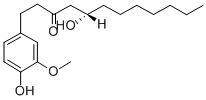The lack of specificity associated with other KIT inhibitors may lead to toxic side effects and recent CUDC-907 studies suggest that imatinib may be cardiotoxic due to inhibition of ABL. Indeed, the cardiotoxicity of imatinib was reported with observation of left ventricular dysfunction and even frank congestive heart failure in patients without a prior history of heart disease. In contrast, the pharmacological profile of masitinib shows that it does not target the kinases presumably involved in cardiotoxicity, e.g. SRC, vascular endothelial growth factor receptors, endothelial growth factor receptors and Abelson proto-oncogene ABL. Thus, the risk of cardiotoxicity appears to be lower with masitinib than with imatinib. In addition to cardiotoxicity, imatinib has been shown to be genotoxic as indicated by a positive chromosome aberration test in human lymphocytes in Chinese Hamster Ovary cells and in a bacterial reverse mutation test. Masitinib, in contrast, is not mutagenic in bacterial reverse mutation tests using Salmonella typhimurium and Escherichia coli and does not cause chromosome aberrations in cultured human lymphocytes. Masitinib also does not cause damage to chromosomes or the mitotic apparatus in mouse bone marrow cells following two daily administrations at 437.5, 875, or 1750 mg/kg/day, and it is not mutagenic in a mouse lymphoma assay. Importantly, masitinib was a potent inhibitor of several gain-offunction KIT mutants, including V559D, which is associated with GIST, and a murine KIT mutant with a deletion of nine amino acids in the juxtamembrane domain. This suggests that masitinib will be effective for the treatment of diseases Semaxanib linked to activating mutations in KIT, which includes mastocytosis, GIST, and canine mast cell tumours. Furthermore, exon 11 mutants, which appear to be the most common type of KIT mutation in these diseases, were more sensitive to masitinib than the wild-type receptor. In support of this, we found that mastocytoma cell lines carrying KIT juxtamembrane mutants had IC50 values for masitinib between 10 and 30 nM, whereas in murine primary BMMCs expressing wild-type KIT, the IC50 for masitinib was 200 nM. This higher sensitivity of juxtamembrane mutants than the wild-type receptor has also been reported for imatinib. Masitinib was a potent inhibitor of mutant PDGFR a and b receptors found in GIST and Chronic Myelomonocytic Leukaemia, respectively. Interestingly, masitinib is also very active against the protein  FIP1L1-PDGFRa, which is generated from an internal deletion of chromosome 4 and is responsible for the induction of hypereosinophilic syndrome. Masitinib therefore may be useful for the treatment of tumours involving mutant PDGF receptors. Our studies also showed that masitinib is active in vivo. Intraperitoneal or oral administration of masitinib inhibited tumour growth in mice with subcutaneous grafts of Ba/F3 cells expressing the D27 KIT mutant. Furthermore, in an intraperitoneal model, masitinib significantly enhanced survival with no indication of general toxicity, as indicated by a lack of weight loss at the administered doses. These results demonstrate that masitinib is orally bioavailable and that it is effective at inhibiting tumour growth in vivo. This agrees with our phase 3 study in dogs showing that orally administered masitinib is safe and effective for the treatment of nonresectable or recurrent grade 2 or 3 nonmetastatic mast cell tumours. In conclusion, our results show that masitinib is a potent and selective inhibitor of the KIT TK. Moreover, it appears to have higher affinity and selectivity in vitro than other TK inhibitors and does not inhibit kinases that are linked to toxic effects. Masitinib also potently inhibits recombinant PDGFR, the intracellular kinase Lyn, and, to a lesser extent, FGFR3. Additionally, masitinib was active and orally bioavailable.
FIP1L1-PDGFRa, which is generated from an internal deletion of chromosome 4 and is responsible for the induction of hypereosinophilic syndrome. Masitinib therefore may be useful for the treatment of tumours involving mutant PDGF receptors. Our studies also showed that masitinib is active in vivo. Intraperitoneal or oral administration of masitinib inhibited tumour growth in mice with subcutaneous grafts of Ba/F3 cells expressing the D27 KIT mutant. Furthermore, in an intraperitoneal model, masitinib significantly enhanced survival with no indication of general toxicity, as indicated by a lack of weight loss at the administered doses. These results demonstrate that masitinib is orally bioavailable and that it is effective at inhibiting tumour growth in vivo. This agrees with our phase 3 study in dogs showing that orally administered masitinib is safe and effective for the treatment of nonresectable or recurrent grade 2 or 3 nonmetastatic mast cell tumours. In conclusion, our results show that masitinib is a potent and selective inhibitor of the KIT TK. Moreover, it appears to have higher affinity and selectivity in vitro than other TK inhibitors and does not inhibit kinases that are linked to toxic effects. Masitinib also potently inhibits recombinant PDGFR, the intracellular kinase Lyn, and, to a lesser extent, FGFR3. Additionally, masitinib was active and orally bioavailable.
We anticipate that masitinib will be effective for the treatment of KIT and PDGFR with similar conformations
Leave a reply